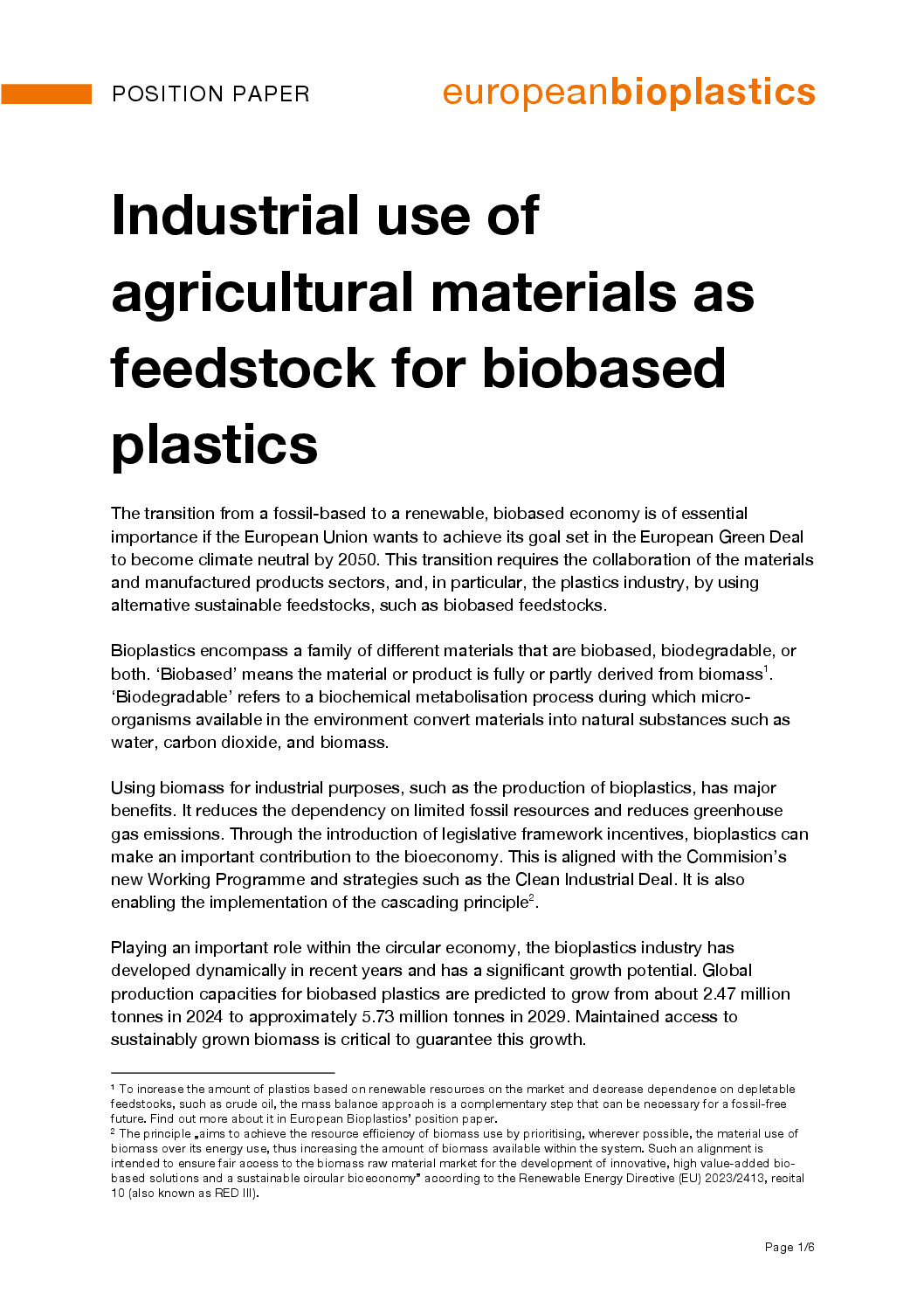The transition from a fossil-based to a renewable, biobased economy is of essential importance if the European Union wants to achieve its goal set in the European Green Deal to become climate neutral by 2050. This transition requires the collaboration of the materials and manufactured products sectors, and, in particular, the plastics industry, by using alternative sustainable feedstocks, such as biobased feedstocks.
Bioplastics encompass a family of different materials that are biobased, biodegradable, or both. ‘Biobased’ means the material or product is fully or partly derived from biomass. ‘Biodegradable’ refers to a biochemical metabolisation process during which microorganisms available in the environment convert materials into natural substances such as water, carbon dioxide, and biomass.
Using biomass for industrial purposes, such as the production of bioplastics, has major benefits. It reduces the dependency on limited fossil resources and reduces greenhouse gas emissions. Through the introduction of legislative framework incentives, bioplastics can make an important contribution to the bioeconomy. This is aligned with the Commision’s new Working Programme and strategies such as the Clean Industrial Deal. It is also enabling the implementation of the cascading principle.
Playing an important role within the circular economy, the bioplastics industry has developed dynamically in recent years and has a significant growth potential. Global production capacities for biobased plastics are predicted to grow from about 2.47 million tonnes in 2024 to approximately 5.73 million tonnes in 2029. Maintained access to sustainably grown biomass is critical to guarantee this growth.
